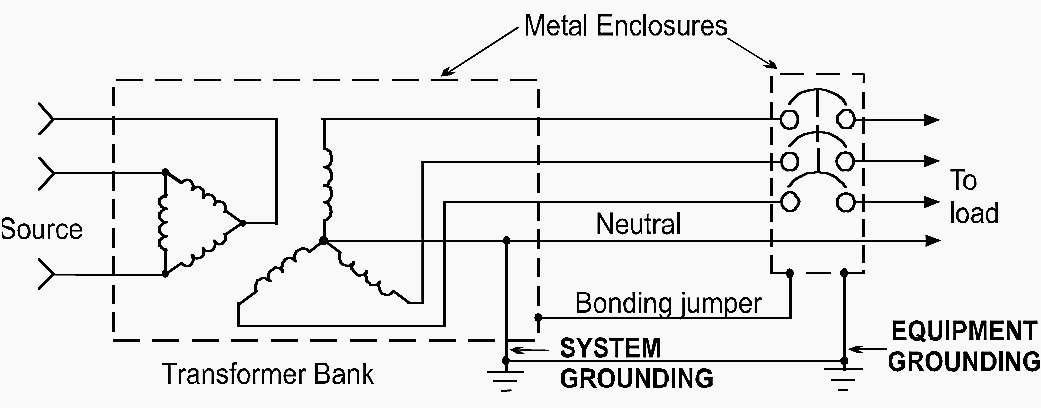
What is grounding?
The term grounding is commonly used in the electrical industry to mean both “equipment grounding” and “system grounding”. Equipment grounding means the connection of earth ground to non-current carrying conductive materials such as conduit, cable trays, junction boxes, enclosures, and motor frames.
System grounding means the connection of earth ground to the neutral points of current carrying conductors such as the neutral point of a circuit, a transformer, rotating machinery, or a system, either solidly or with a current-limiting device.
What is grounding?
The term grounding is commonly used in the electrical industry to mean both “equipment grounding” and “system grounding”. Equipment grounding means the connection of earth ground to non-current carrying conductive materials such as conduit, cable trays, junction boxes, enclosures, and motor frames.
System grounding means the connection of earth ground to the neutral points of current carrying conductors such as the neutral point of a circuit, a transformer, rotating machinery, or a system, either solidly or with a current-limiting device.
Figure 1 illustrates the two types of grounding.

What is a grounded system?
It is a system in which at least one conductor or point (usually the middle wire or neutral point of transformer or generator windings) is intentionally grounded, either solidly or through an impedance (IEEE Standard 142-2007 1.2).
The types of system grounding normally used in industrial and commercial power systems are solid grounding, low resistance grounding, high resistance grounding, and ungrounded.
What Is the Purpose of System Grounding?
System grounding, or the intentional connection of a phase or neutral conductor to earth, is for the purpose of controlling the voltage to earth, or ground, within predictable limits. It also provides for a flow of current that will allow detection of an unwanted connection between system conductors and ground [a ground fault].

